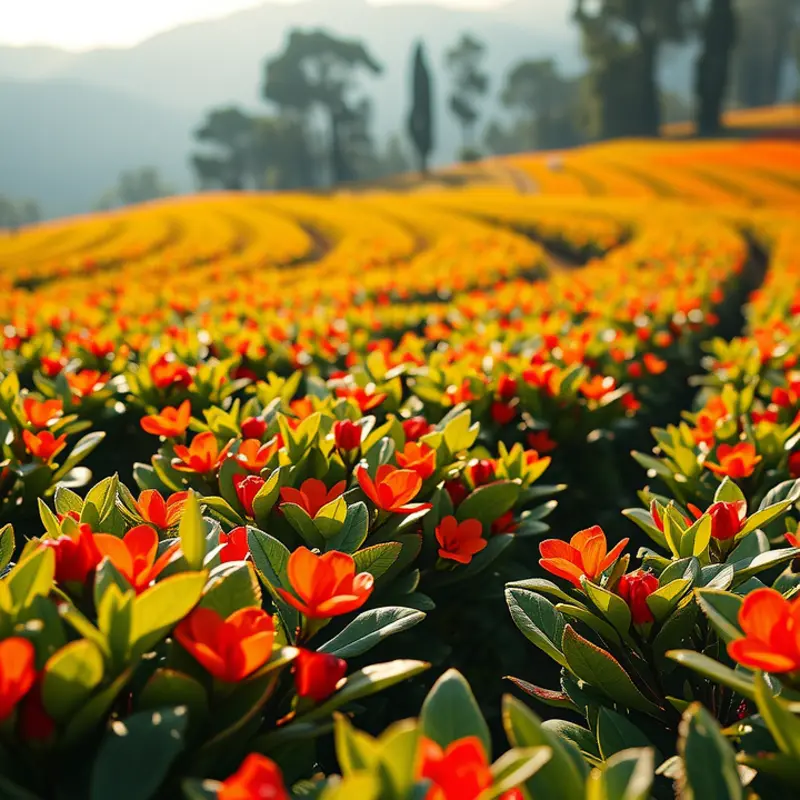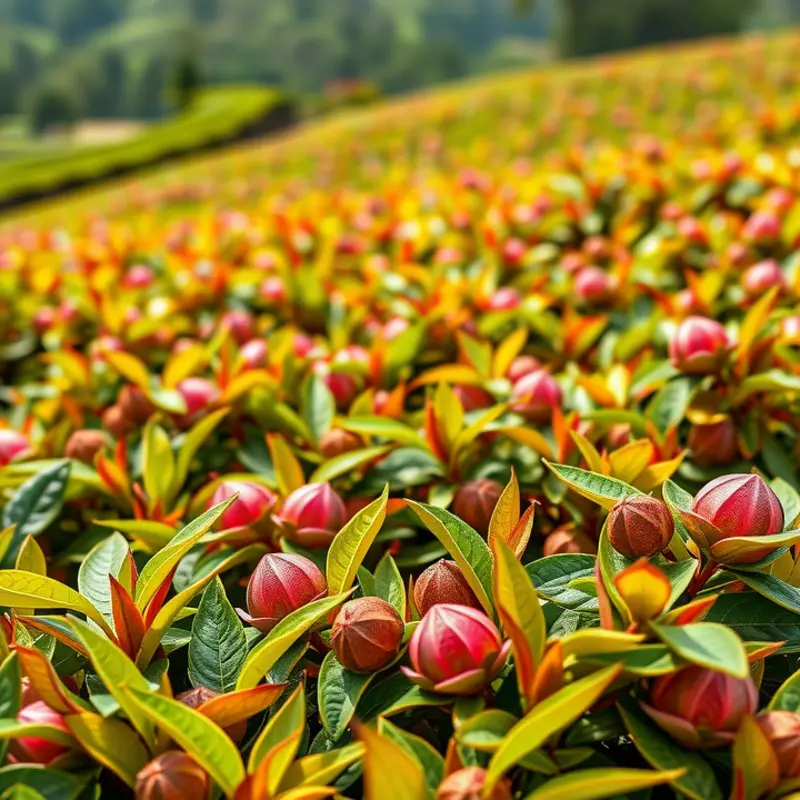Choosing tea isn’t just about flavor; it’s a commitment to sustainability. Ethical tea sourcing supports environmental integrity, fair trade practices, and the health of our planet. Whether you drink green, black, or herbal, ethical choices ensure that your tea is grown and harvested in ways that protect ecosystems and empower farmers. This journey of conscious consumption reveals how our seemingly small choices can make a significant impact. With proper guidance, every cup can be a step toward a greener future.
The Impact of Conventional Tea Sourcing

Conventional tea sourcing often exacts a heavy toll on the environment and social structures, underscoring the need for eco-conscious alternatives. A major environmental repercussion of traditional tea farming is deforestation. Many large plantations clear vast tracts of forest to increase their cultivation areas. This not only leads to habitat loss for countless species but also disrupts the carbon balance, thereby exacerbating climate change. Efforts aimed at safeguarding forested areas are crucial in maintaining biodiversity and ensuring ecological stability.
Another significant concern is water pollution. The use of chemical fertilizers and pesticides in tea gardens leaches into nearby water bodies, causing contamination. These chemicals can destroy aquatic ecosystems and pose health risks to local communities relying on these water sources for everyday use. Adopting organic farming techniques can mitigate these harmful impacts by reducing chemical runoff and promoting a healthier environment.
Beyond environmental issues, conventional tea sourcing poses social challenges, particularly in perpetuating economic disparities. Tea farmers, often situated in developing regions, may not receive fair compensation for their labor. Large companies tend to dominate the market, leaving small-scale farmers with little bargaining power. This economic inequity traps farmers in cycles of poverty, impacting their quality of life and access to essential services such as education and healthcare.
Sustainable practices in tea sourcing can play a pivotal role in addressing these concerns. Utilizing agroforestry, where tea plants grow alongside native trees, can help reclaim deforested areas and enhance biodiversity. It also contributes to a more sustainable livelihood by offering farmers additional products such as timber or fruit. Moreover, fair trade certification can empower farmers, ensuring they receive fair prices and can invest in their communities.
For eco-conscious tea lovers, understanding and supporting sustainable practices is vital. By making informed choices, consumers can influence the market towards ethical practices. To further deepen your understanding of sustainable food practices, consider exploring eco-smart kitchen storage methods that align with reducing environmental impact.
The journey towards ethical tea sourcing is an ongoing process. However, with increased awareness and collective action, we can forge a path that supports both the planet and the people who cultivate this cherished beverage.
Choosing Ethical Tea: A Path to Sustainability

For eco-conscious tea lovers, selecting ethical brands empowers both local communities and the environment. When you buy tea, look for certifications like Fair Trade, Rainforest Alliance, and Organic. These labels indicate a commitment to sustainable practices and respect for both the land and its inhabitants.
Fair Trade Certification ensures that farmers receive a fair price for their crop, which supports community development and economic stability. By purchasing fair trade tea, you contribute to improved living conditions for farmers, reducing poverty and increasing opportunities for education and healthcare. This is a crucial step in promoting economic equity across the tea industry.
The Rainforest Alliance certification goes beyond fair wages, focusing on ecological balance. It requires farms to follow practices that safeguard biodiversity and conserve natural resources. This label helps to protect tropical forests, which are vital for absorbing carbon dioxide and ensuring clean air and water. By consuming Rainforest Alliance certified tea, you help to halt the irreversible consequences of deforestation and habitat loss.
Choosing Organic tea is equally important. Organic farming practices prohibit synthetic fertilizers and pesticides, promoting a system that is healthier for both the consumer and the environment. The absence of these chemicals means less pollution in waterways and a lower carbon footprint for agriculture. These methods also support healthier soil, which leads to better yields and richer biodiversity. Organic tea, therefore, ensures that every sip you take is supporting a method of farming that respects the earth’s cycles.
Besides the obvious benefits for the planet and local communities, supporting these brands brings peace of mind. Knowing your tea contributes to healthier farming practices ensures that you enjoy a more genuine and eco-friendly experience with each cup. Each decision you make as a consumer can catalyze change, encouraging more brands to adopt sustainable practices.
To further explore how your choices impact the environment, you might find our guide on eco-smart kitchen storage helpful.
By choosing brands with these certifications, you partake in a global effort to foster a more sustainable and equitable world. Whether you are new to eco-conscious consumption or a seasoned supporter, every purchase decision makes a difference. Ethical tea is not merely a beverage; it’s an invitation to change how the world farms, one cup at a time.
Final words
The journey toward ethical tea sourcing is a meaningful endeavor that resonates with environmental values. By understanding the impact of conventional tea practices and learning how to choose responsibly sourced brands, you’re taking crucial steps toward supporting sustainable agriculture and ethical labor. Each cup of tea you brew can contribute to a healthier planet and empower countless communities. So, as you sip that warm beverage, remember: you’re not just enjoying delightful flavors; you’re also participating in a larger movement of change. Embrace this journey and inspire others to do the same.








